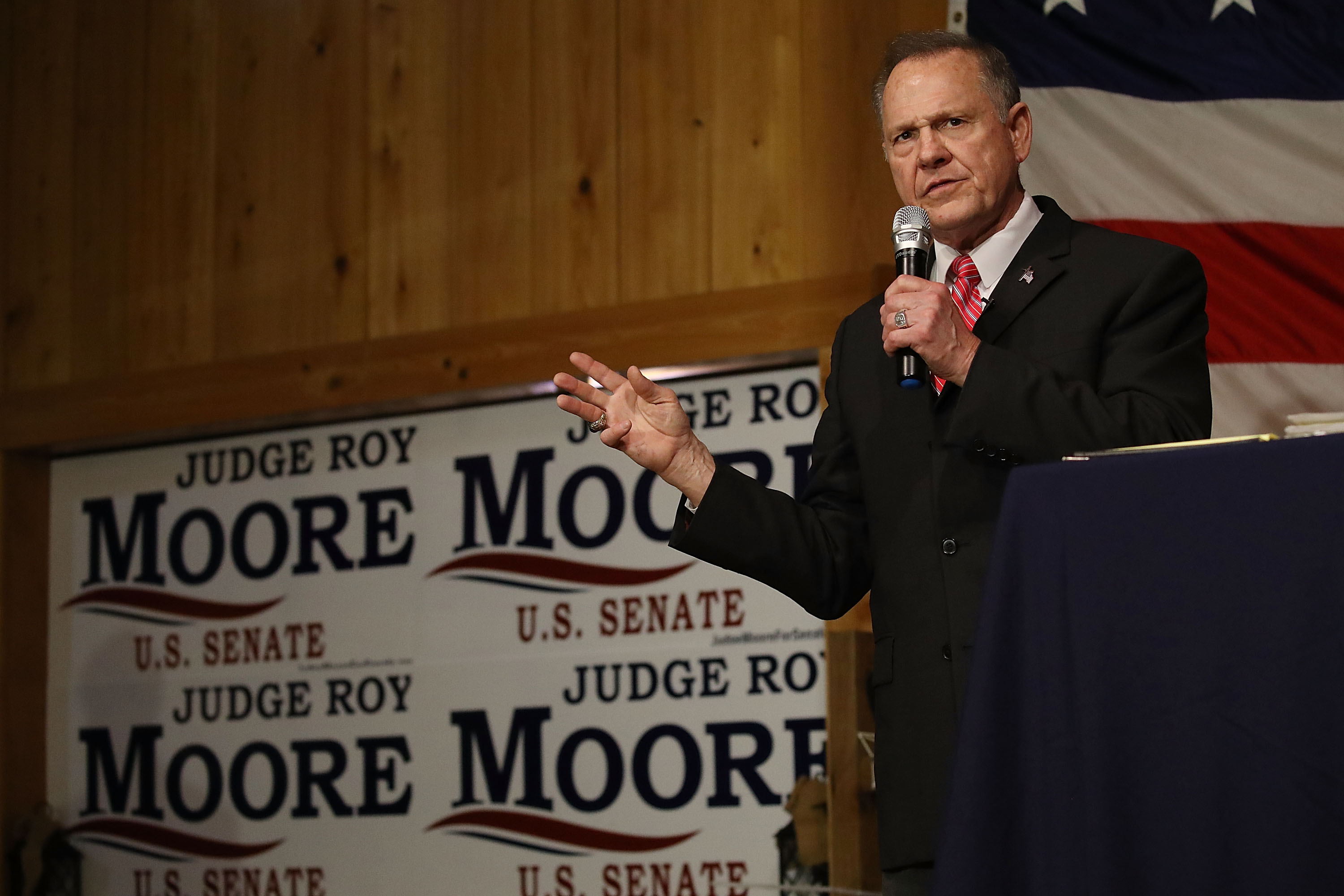Roy Moore's defeat shows partisanship has its limits
In Alabama, GOP voters followed their conscience, not their party


A free daily email with the biggest news stories of the day – and the best features from TheWeek.com
You are now subscribed
Your newsletter sign-up was successful
How do you elect a Democrat to a Senate seat in the Deep South in 2017?
You do it by running a Republican who's been credibly accused of child predation; who lost his judgeship twice after defying the rulings of higher courts; whose views of religion and sexuality place him on the far rightward fringe of public opinion; who gets himself repudiated by the state's senior senator on the weekend before the election; and who believes that many of America's problems could be fixed by repealing every constitutional amendment passed since the original Bill of Rights was adopted — a change that would, among many other things, remove the abolition of slavery from the Constitution and deprive women of the right to vote.
What Roy Moore managed to accomplish on Tuesday in Alabama is quite extraordinary — to run as a right-wing Republican for Jeff Sessions' old Senate seat and lose it to a Democrat who pledged to uphold Planned Parenthood's position on abortion rights. That takes truly epic awfulness, and Moore achieved it.
The Week
Escape your echo chamber. Get the facts behind the news, plus analysis from multiple perspectives.

Sign up for The Week's Free Newsletters
From our morning news briefing to a weekly Good News Newsletter, get the best of The Week delivered directly to your inbox.
From our morning news briefing to a weekly Good News Newsletter, get the best of The Week delivered directly to your inbox.
In doing so, Moore has shown us — all of us, Democrats as well as Republicans — something very important. He's demonstrated that the most powerful force in American politics today — the reflexive demonization of "other party" that we call negative partisanship — has its limits.
If you run for high office in Alabama as a Republican, it's all but certain you're going to win — whether you're a good candidate, a mediocre candidate, or a seriously weak candidate. But now we know that if you're truly, thoroughly toxic — if your positions on the issues and long-term track record place you far to the right of any politician in the body you're aiming to join and your character has been seriously and repeatedly impugned — then you might lose.
It sounds like a joke, and it sort of is. But American politics is increasingly a farce, and the punchline to this particular joke is important: The juggernaut can be stopped, however tenuously. The Republican Party cannot move ever-further right, unapologetically championing know-nothing, malicious bigotry, with its candidates sinking to the bottom of a moral septic tank, and still expect to carry the day. Not every time. Not everywhere. Not even in Alabama.
That's very good to know. Indeed, it may be the surest cause for hope since the catastrophe of November 8, 2016.
A free daily email with the biggest news stories of the day – and the best features from TheWeek.com
Turnout on Tuesday was very high for a special election. That's a good sign for November 2018 and beyond. Yes, Democrats showed up. Good. More, please. But so did independents and Republicans — and I bet a close look at the exit polls in the coming days will show a non-negligible number of registered Republicans voting for Democrat Doug Jones. As I write, 1.7 percent of the vote went to write-in candidates. That's greater than the difference between Jones and Moore. The Republicans who made that choice flew a kamikaze mission against their own party on Tuesday, and they deserve a decent amount of the credit for the outcome.
We need more of that, too. A lot more.
A recent PRRI poll put the number of Never Trump Republicans (those who didn't support the president last time and don't plan to the next time) at 18 percent of the party. What if those people followed their consciences next time instead of political expediency? They couldn't run a candidate who could beat Trump. But they could run a candidate who torpedoes him. Or they could just sit out the election. Or, God forbid, actually vote for the Democrat.
Trumpism — and its rabid half-brother Bannonism — needs to lose in 2018 and 2020. But not just lose. It needs to lose yuge. Decisively. Unambiguously. It needs to be repudiated in no uncertain terms. If a staunchly pro-choice Democrat can (narrowly) win a Senate seat in Alabama, then it's possible. The spell can be broken. There are limits to what people will embrace and accept. It can be done. A Republican can recognize that sometimes the sludge his own party coughs up and places on the ballot is worse than the poor schmuck running against him.
That might not sound like much. But in the waning days of this pitch-dark political year, it feels a little bit like progress. I'll take it.
Damon Linker is a senior correspondent at TheWeek.com. He is also a former contributing editor at The New Republic and the author of The Theocons and The Religious Test.
